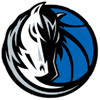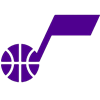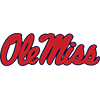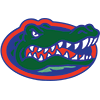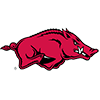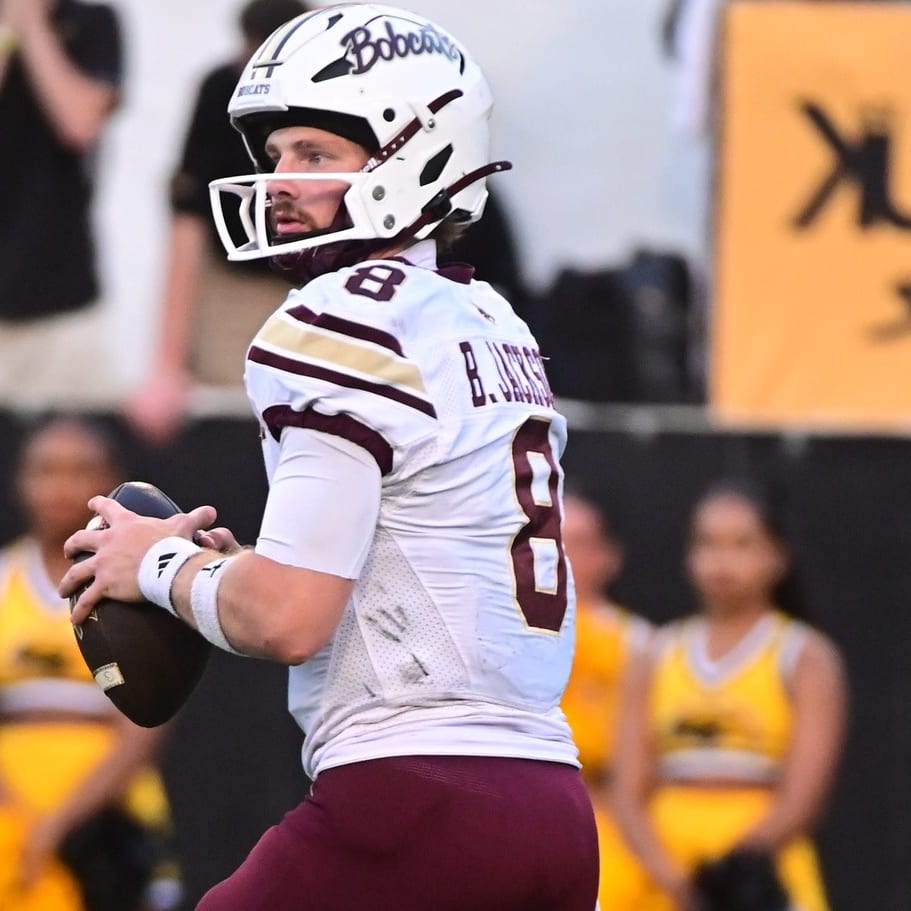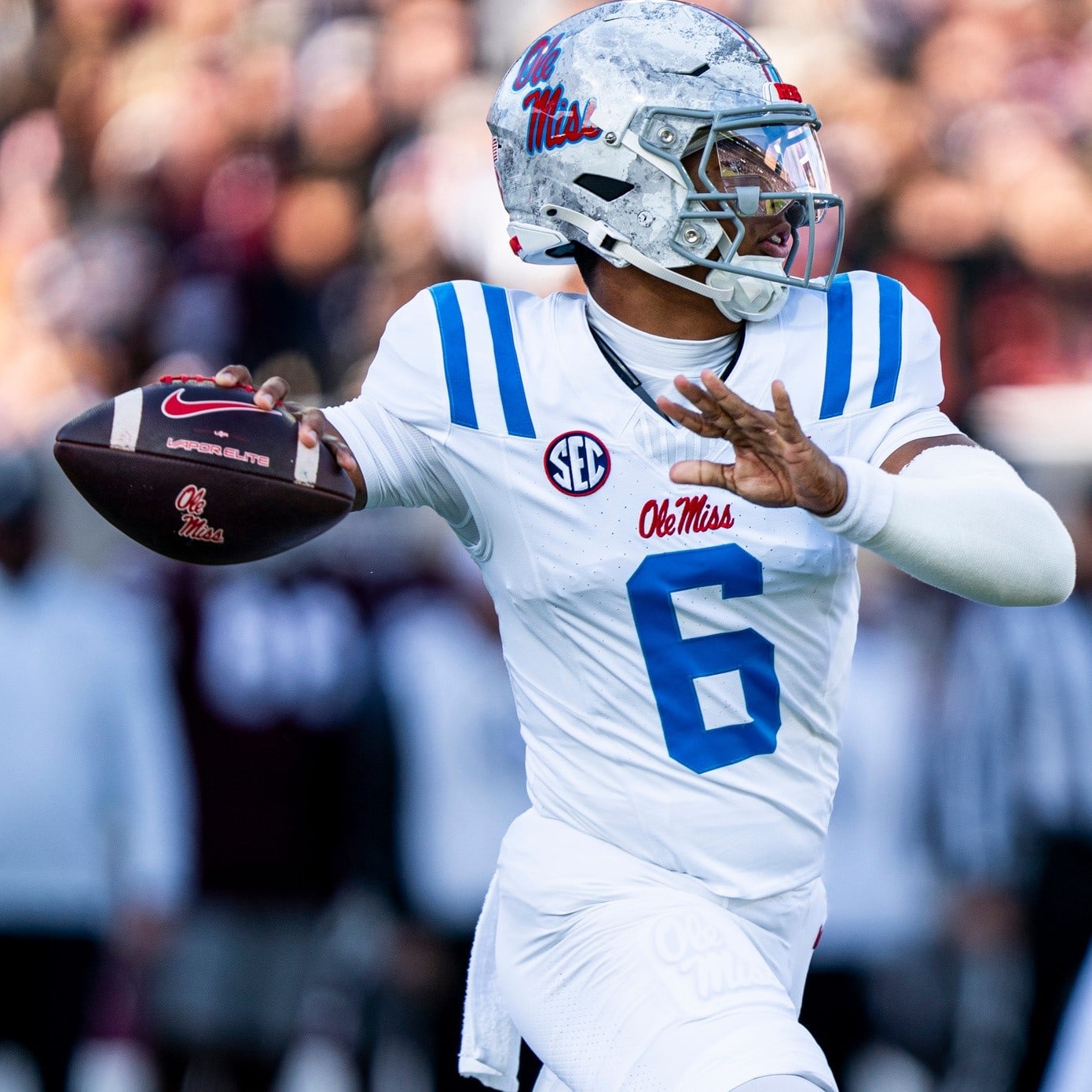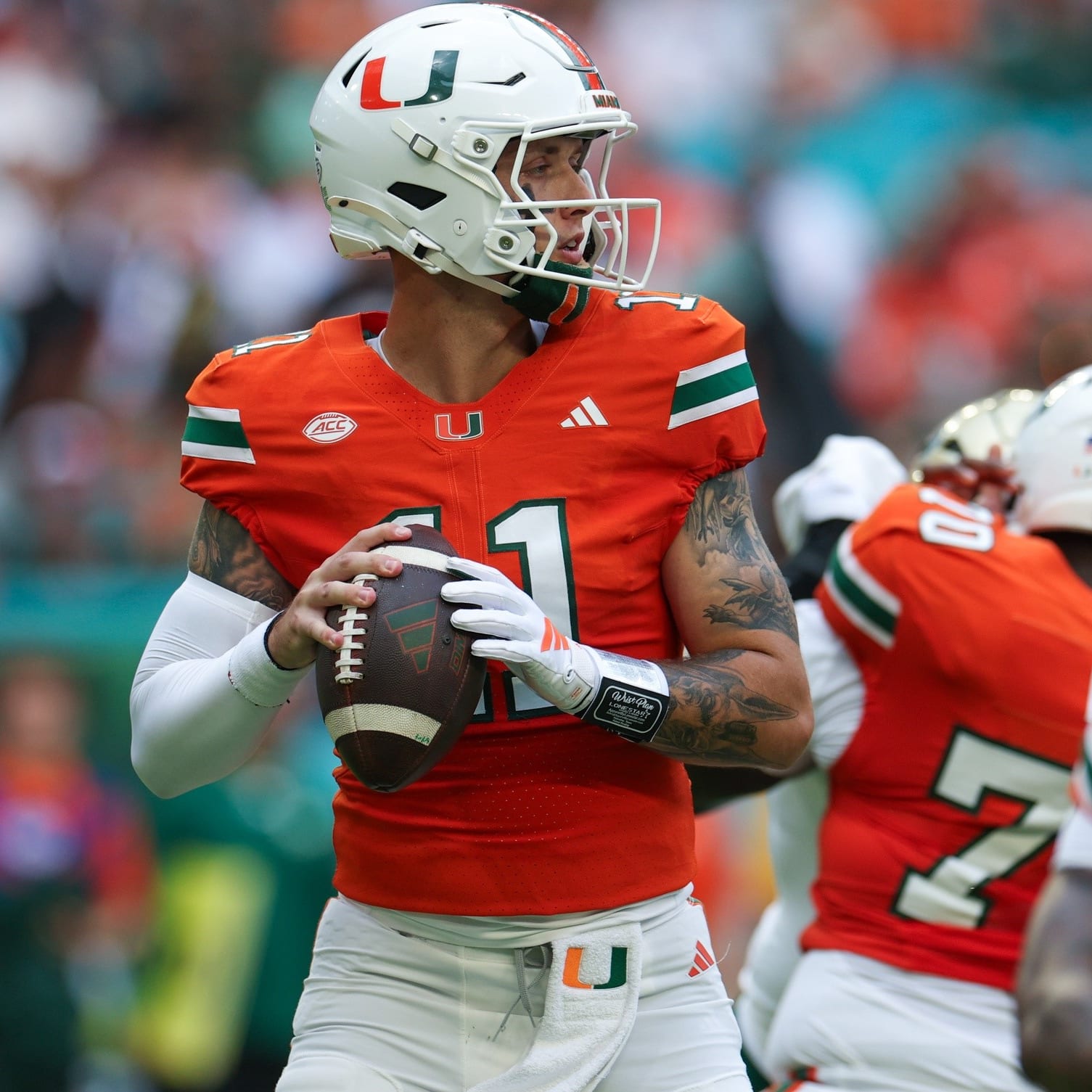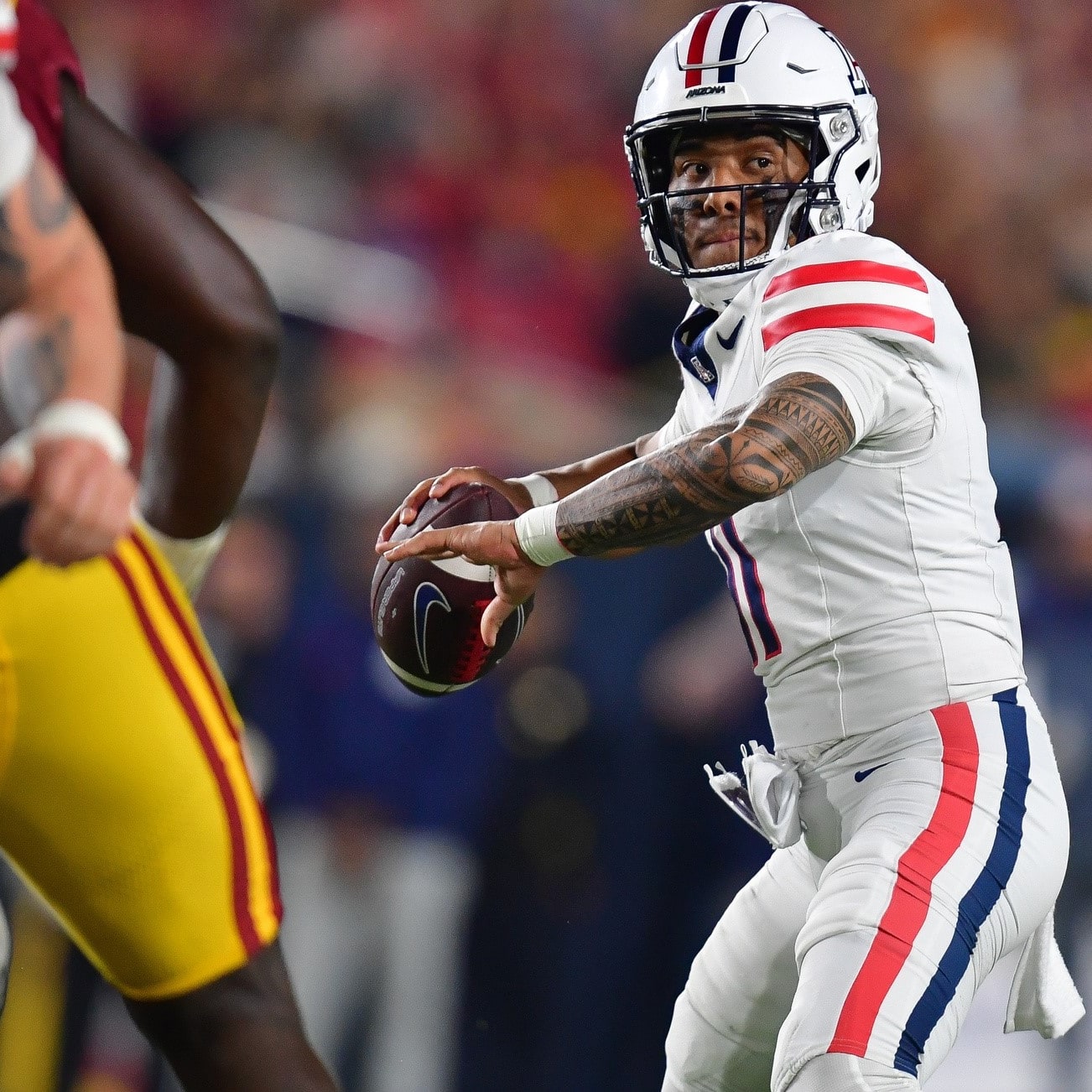1.) Breece Hall, Iowa State 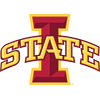
Running back is stacked at the top this year, but Hall takes the crown as the top fantasy rusher coming into 2021. The junior is the engine that makes the Cyclone offense go. He ran for 21 touchdowns in 12 games last season while taking on a huge workload (23.3 carries per game) and maintaining a strong 5.6 YPC average. If there's a knock on Hall, it's that his pass-catching work is pedestrian, as he caught 23 passes for 180 yards in 2020. That's still bonus production given what Hall is providing on the ground, however. Iowa State brings back almost its entire offense, so there's little reason to doubt Hall will be in line for anything but another dominant season.
2.) Mohamed Ibrahim, Minnesota 
Ibrahim handled the bulk of Minnesota's ground-heavy attack in 2020, notching more than 200 carries for the second time in three seasons despite playing just seven games. He boasts superb vision and power but doesn't quite have the top-end speed to be a consistent home-run threat and hasn't proven his abilities as a pass-catcher yet. Even without an elite top gear, Ibrahim averaged 5.4 yards per carry and came up big in the red zone, compiling 15 rushing scores. He should serve as the Gophers' workhorse again in 2021, with Treyson Potts slotted in as his primary backup. -Chris Benzine
3.) Bijan Robinson, Texas 
Robinson was the best running back on Texas' roster as a freshman,
1.) Breece Hall, Iowa State 
Running back is stacked at the top this year, but Hall takes the crown as the top fantasy rusher coming into 2021. The junior is the engine that makes the Cyclone offense go. He ran for 21 touchdowns in 12 games last season while taking on a huge workload (23.3 carries per game) and maintaining a strong 5.6 YPC average. If there's a knock on Hall, it's that his pass-catching work is pedestrian, as he caught 23 passes for 180 yards in 2020. That's still bonus production given what Hall is providing on the ground, however. Iowa State brings back almost its entire offense, so there's little reason to doubt Hall will be in line for anything but another dominant season.
2.) Mohamed Ibrahim, Minnesota 
Ibrahim handled the bulk of Minnesota's ground-heavy attack in 2020, notching more than 200 carries for the second time in three seasons despite playing just seven games. He boasts superb vision and power but doesn't quite have the top-end speed to be a consistent home-run threat and hasn't proven his abilities as a pass-catcher yet. Even without an elite top gear, Ibrahim averaged 5.4 yards per carry and came up big in the red zone, compiling 15 rushing scores. He should serve as the Gophers' workhorse again in 2021, with Treyson Potts slotted in as his primary backup. -Chris Benzine
3.) Bijan Robinson, Texas 
Robinson was the best running back on Texas' roster as a freshman, but it took the staff five games to turn him loose. Once he took over, he lived up to his five-star status with three 100-yard games in his last four outings, highlighted by a 10-carry, 183-yard performance in the bowl game. He enters this year as the clear-cut No. 1 in an offense, designed by Steve Sarkisian, that got the most out of Najee Harris both as a runner and as a pass catcher at Alabama. Robinson and his 222-pound frame with blazing speed is about to be turned loose on the college football world.
4.) Sincere McCormick, UTSA 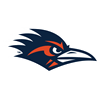
The Roadrunners' nickname is apt to the team philosophy, as UTSA sported a 55.7 run play percentage in 2020 to rank in the top third of the league. McCormick kept Wile E. Coyote at bay most often, rushing 249 times for 1,467 yards and 11 touchdowns. He finished the season handling 50.2 percent of the team's rushing plays, which marks a nearly 11 percent jump over his carry share from 2019. He's also proficient as a pass-catcher, reeling in 20 balls for a second straight season. While he can't do much more than last season, McCormick has a path to a similar outcome in 2021. --CB
5.) Kevin Harris, South Carolina 
Harris was one of the few bright spots in a tough 2020 season for the Gamecocks. Touted freshman MarShawn Lloyd was expected to come in and win the job but instead suffered an injury, leaving SC to turn it over to Harris, who never looked back. Harris (510, 225) steamrolled his way to 1,138 yards and 15 touchdowns, averaging 6.2 YPC, and his 113.8 YPG was actually tops in the SEC, ahead of Najee Harris. South Carolina is starting from scratch and Lloyd is too talented not to be a factor if healthy, but Harris has earned top billing in this backfield and is still a force for fantasy.
*Editor's Note: Harris had a minor back procedure and is expected to miss the start of fall camp.
6.) Leddie Brown, West Virginia 
Brown finally seized control of the Mountaineers' backfield last season and made the most of it to the tune of 199 carries for 1,010 yards and nine touchdowns over 10 games. He shouldn't have carries siphoned away as a senior, so repeating or possibly even expanding on the workload a bit should be on the table. Brown has also proven he's a capable receiver, reeling in 31 passes for 202 yards and a pair of touchdowns last season while posting a 73.8 percent catch rate. Tony Mathis could be next in line but finished 2020 with just 18 totes. -CB
7.) Jarek Broussard, Colorado 
No player who appeared in six or fewer games had more rushes last year than Broussard, who took 156 carries for 895 yards and five scores in the Buffs' shortened season. His success is particularly impressive considering Colorado's other running backs averaged 2.1 YPC over their 100 combined attempts. Broussard projects to have one of the nation's highest workloads, and at 5.7 YPC, those numbers could pile up in a big way. The one knock on Broussard is his PPR upside (9 REC, 65 YDS) but his rushing production should be strong enough to carry his value even in those formats.
8.) Jahmyr Gibbs, Georgia Tech 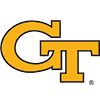
Gibbs is yet another second-year running back with obvious star potential. A rare four-star recruit for Georgia Tech, Gibbs looked like the most talented player on the offense as a true freshman last year, averaging 5.2 YPC and scoring four touchdowns while also burning defenses in the pass game with 24 catches for 303 yards and three TDs on 31 targets. Georgia Tech will be in Year 3 of the post-option era, so there figures to be a higher quality of play around Gibbs, too. Gibbs is the star of this offense and will be used as such, making him a worthy early-round target.
9.) Greg Bell, San Diego State 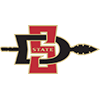
The San Diego State running back is generally a good source of fantasy production regardless of the year, and Bell was no exception when healthy in 2020. He started off with four straight 100-yard outings and finished the season with 637 yards and six scores on 113 attempts in seven games. Bell dealt with an ankle injury down the stretch that hampered his bottom-line production, but a look at his strong start can give a good indication of his role and projection for 2021. San Diego State is still a run-first team that likes to lean on a workhorse, and Bell fits that mold. Look for the 200-pound California native to lead the charge in the Aztec backfield this season.
10). Kyren Williams, Notre Dame 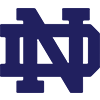
Notre Dame's backfield situation was up for grabs entering 2020 and many were hyping freshman Chris Tyree, but it was Williams who seized control of the backfield with 246 total touches. Williams peeled off 5.3 YPC behind a great O-line and caught 35 of 48 targets for 313 yards. Notre Dame has question marks elsewhere on offense, losing several offensive linemen and longtime quarterback Ian Book, so this offense could have some growing pains. Williams should be the starter and his pass-catching boosts his value, but factors outside of his control could curb his efficiency.
11.) Isaiah Spiller, Texas A&M 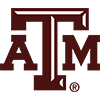
The only thing keeping Spiller from being a Top 5 fantasy back is the Aggie backfield depth. On talent alone, Spiller is special. At 6-1, 225 with speed to burn, Spiller has averaged 5.5 YPC over 362 career rushes. He had a 50 percent share of the carries last season, but it's possible that star talents like Ainias Smith and Devon Achane eat into that workload. Smith is a problem in particular as his pass catching (43 REC) makes him a third-down staple that cuts into Spiller's snaps. Still, Spiller's talent and role in this powerful run game keep him as a viable RB1 target.
12.) Chris Rodriguez, Kentucky 
The Rodriguez hype is mounting with his main competition for carries, AJ Rose, off to the NFL and Kentucky's new offensive coordinator being quoted as viewing Rodriguez as a 20-touch per-game player. Rodriguez's production warrants a workload bump; he has averaged 6.9 YPC over his last two seasons with 17 touchdowns. The unknown is his pass-catching ability as he has just two catches in that span. Even if that doesn't spike dramatically, Rodriguez is primed to have one of the biggest workloads in the SEC and his track record suggests he'll thrive with the added volume.
13.) DeWayne McBride, UAB 
McBride, the heir apparent to UAB's all-time leading rusher, Spencer Brown, looks like the real deal. At 5-11, 220, McBride is powerfully built like his predecessor and he was a bully with his carries last year, taking 47 attempts for 439 yards and four touchdowns.No other UAB back currently on the roster with at least 40 carries averaged 5.0 YPC. Things are set up for McBride to take on a high volume in UAB's run-heavy scheme, and though he won't maintain the near 10.0 YPC efficiency, he has the tools to be one of the most productive rushers in the nation this season.
14.) Ulysses Bentley, SMU 
Bentley is an interesting case in that he finished just outside the Top 10 among qualified (10 games) running backs in fantasy points per game, but much of his heavy lifting was done in the first three weeks of the season against bad or FCS teams. In his last seven, Bentley averaged just 4.0 YPC and had four touchdowns after producing seven scores in the first three games. Box score scouting can be done to nitpick anyone, but Bentley's prolonged trend of mediocrity means that while he has some skill, the downside has to be acknowledged and accounted for by his drafters.
15.) Tyler Allgeier, BYU 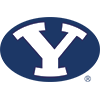
Even though Zach Wilson and All-American left tackle Brady Christensen are gone, don't write off BYU just yet. Allgeier gives reason to believe in the offense after ripping off 1,130 yards and 13 touchdowns on 7.53 YPC over 11 games last season. He scored a touchdown in all but one game. At 5-11 and 220 pounds, Allgeier is no easier to bring down in space just because Wilson isn't there anymore. He will still be a force, especially against BYU's schedule that ranks 84th in ESPN's FPI metric. Look for Allgeier to become an even more pivotal part of the BYU attack this season
16.) Deuce Vaughn, Kansas State 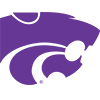
Vaughn burst on to the scene with 429 all-purpose yards and four touchdowns over his first three games. While his frame (5-5, 168 pounds) doesn't typically allow for every-down contributions, the light-footed back's ability to change direction on a dime makes him hard to get a hand on. The elusive back's rushing effort (123-642-7) was good for a Kansas State freshman yardage record and his 434 receiving yards ranked fourth among backs nationally. Vaughn should be a particularly appealing option in PPR formats, where his value as a receiver is maximized. -CB
17.) Master Teague, Ohio State 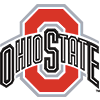
Teague split time with Trey Sermon in 2020 and finished the year with 514 yards and eight touchdowns on 104 carries. With Sermon gone and freshman C.J. Stroud likely to take over under center, Teague seems positioned to inherit more carries in what could be a slightly more ground-heavy approach for the Buckeyes. Don't expect a ton from him in the passing game, especially given the Buckeyes receiving corps; Teague and Sermon combined for just 17 receptions a season ago. However, Teague should see plenty of second-half usage when the Buckeyes are ahead, which should be often. -CB
18.) Tank Bigsby, Auburn 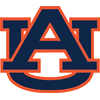
Bigsby parallels Bijan Robinson in that he was the best running back on the roster as a freshman and a now-fired coaching staff wasted time before finally getting the picture. He doesn't get the benefit of a Sarkisian offense, but Bryan Harsin should make Bigsby the focal point. Bigsby, who averaged 6.0 YPC and had four 100-yard outings, is among the most talented backs in the country and now has a full season under his belt. He will be a workhorse with little competition for carries in an offense that could be even more run-heavy after losing much of its pass-catching personnel.
19.) Kevin Marks, Buffalo 
Jaret Patterson was the story in Buffalo in recent years and with good reason, but Marks is no slouch and Patterson is gone to the NFL. Marks has a 1,000-yard season to his name and 28 rushing scores through three seasons while splitting work with Patterson. The fly in the ointment is that Buffalo lost its coach, Lance Leipold, so the scheme may not be as run-heavy as it was in recent years. Still, Buffalo isn't going full air-raid so the run game will be a staple and Marks is the clear-cut No.1 with an impressive track record that suggests he'll flourish this year.
20.) Jerome Ford, Cincinnati 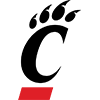
An Alabama transfer with SEC size at 5-11 and 215, Ford put enough on film in 2020 to draw extremely high expectations heading into this year. Ford played behind senior Gerrid Doaks but managed to impress with his workload, taking 73 carries for 483 yards (6.6 YPC) and eight touchdowns. With Doaks gone, Ford now projects for one of the safest workloads in the country, meaning that his talent is about to be fully unleashed on the AAC. There's little doubt that between Ford's skill and workhorse role within the best offense in the conference, he can be a Top 10 running back.
21.) De'Montre Tuggle, Ohio 
Like most MAC backs, Tuggle had a shortened season that was additionally impacted by in-season cancellations. When Ohio played, though, Tuggle was a playmaker, taking 53 carries for 403 yards and six touchdowns in three games. He'll be the No.1 threat in Ohio's run-heavy offense, offering a blend of volume and job security. O'Shaan Allison will take on carries as well and Ohio tends to lean on its quarterbacks in the run game, but Tuggle is still a player to target as one of the best MAC backs who has the burst to post impressive production with his projected workload.
22.) Kobe Lewis, Central Michigan 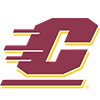
Lewis checks in as a high-efficiency runner with a bankable workload to go with pass-catching upside. He has averaged over 14 carries a game over the last two seasons -- including over 17 in 2020 -- while also racking up 40 catches in that stretch. Lewis, who is a bruiser at 220 pounds, will be a physical force in the MAC and with his workload projection, reaching double-digit rushing touchdowns is certainly within reach.
23.) Trelon Smith, Arkansas 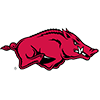
Smith endeared himself well to the Razorbacks in 2020 and is in line for more in the upcoming season. After sitting out in 2019 per transfer rules, Smith racked up 710 rushing yards and five rushing scores with a 5.3 YPC mark. He also caught 22 of 35 targets over 10 games. Rakeem Boyd is now gone, so Smith could have an even larger share of the workload than his 34 percent mark in 2020. Quarterback KJ Jefferson will factor into the run game as well, but it's clear that Smith is the top back for the Razorbacks.
24.) Tyler Badie, Missouri 
It's Badie's time to shine in the Missouri backfield after Larry Rountree's departure for the NFL following a successful career with the Tigers. Rountree soaked up 60 percent of the carries in 2020, so while it would be expecting too much for Badie to step directly into that type of role, it's true that there are a lot of carries up for grabs and Badie projects to be first in line. Badie has already proven to be a threat as a pass-catcher with 60 catches on 86 targets over the last two seasons, and his rushing ability is somewhat underrated -- he averaged 5.0 yards per carry over 48 attempts last season. Missouri is light on experienced options in the backfield behind Badie so he has a safe projection in terms of his role, and his pass-catching ability will keep him in the gameplan even if he's only pushing into the mid-teens in terms of carries each week.
25.) Zach Charbonnet, UCLA 
Charbonnet was one of the biggest names to hit the transfer portal this offseason and he could be one of the nation's most impactful transfers in 2021. The former blue-chip recruit started out at Michigan, where he averaged 5.1 yards per carry over 168 attempts in 18 total games while punching in 12 rushing scores. He hasn't shown much as a pass-catcher with 14 career receptions but his rushing ability makes him a strong fit in Chip Kelly's offense, which is among the most run-heavy in college football. Brittain Brown is a competent rotational back but Charbonnet has the chance to truly break out for the Bruins this fall. Even if Dorian Thompson-Robinson is racking up a fair amount of rushing production at quarterback, there will still be more than enough room for Charbonnet to be one of the focal points of the Bruin offense.
26.) Austin Jones, Stanford 
Volume was the key to Jones' value last year as he ranked ninth in carries per game (21.0), while his 4.4 YPC was among the worst for runners with at least 125 carries. That makes him a risky option at his current ADP as someone going in the first five rounds, because if someone cuts into that volume, Jones hasn't shown that he has the juice to hit value with limited carries. Last year, he had just two carries of 20 or more yards on 126 rushes. Guys like 2020 four-star E.J. Smith or Nathaniel Peat could get longer looks if Jones continues to provide mediocre returns.
27.) Chris Smith, Louisiana 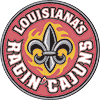
Louisiana has turned into a machine in the run game, ranking inside the top 15 in yards per carry as a team each of the last three seasons. Much of that has been to the credit of Trey Ragas and Elijah Mitchell, but Smith has shown plenty of promise in his own right and with Ragas and Mitchell now playing on Sundays, this is Smith's backfield. No other Ragin' Cajun had more than 10 carries a season ago, while Smith took 62 carries for 350 yards and also showed some pass-catching chops with 16 grabs for 170 yards on 18 targets.
28.) Bryant Koback, Toledo 
Koback entered last year as a well-known force in the fantasy landscape, coming off back-to-back double-digit touchdown seasons. He showed a new facet to his game, getting highly involved in the Toledo passing attack with 24 catches for 228 yards and two touchdowns on 31 targets. That improvement took some of the sting out of Koback's rushing regression. Koback went from averaging 6.0 YPC over his two first two seasons to a mere 4.2 in 2020. Small sample? Perhaps, but 123 carries isn't nothing. The question then becomes, which parts of Koback's 2020 will carry over to this season? Will he remain as involved as a pass-catcher? Will his rushing production stay pedestrian, or was 2020 a fluke in that sense? It's impossible to know the answer to either, especially the second question. Still Koback's strong track record entering last year should give him some benefit of the doubt. He'll still be a high-volume runner with consistent production, even if the days of him scoring a touchdown on ~10% of his carries are behind us.
29.) Tyler Goodson, Iowa 
After seeing his role grow down the stretch of the 2019 season, Goodson seized firm control of the top job last year. His 49 percent carry share nearly doubled Mekhi Sargent, his closest competition in the backfield. Goodson finished his second campaign in Iowa City averaging 17.4 carries and 95.3 rushing yards per contest while notching seven scores in eight games. He's also sufficient as a receiver, allowing him to stay on the field for all three downs. With Sargent gone, Ivory Kelly-Martin is next in line behind Goodson, who could be in line for an even larger share this season. -CB
30.) Tyjae Spears, Tulane 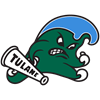
Spears is part of a two-headed monster in the Tulane backfield alongside Cameron Carroll. There's some risk with Spears given that he's coming off an ACL injury that ended his season in Week 4, but he is trending towards being ready for the season by all reports. Spears is dangerous when healthy, having averaged 7.4 yards per carry over 37 attempts last season. Look for him and Carroll to have a fairly even workload split, but that still provides more than enough carries for each to be fantasy relevant as Tulane runs the ball nearly 60 percent of the time while playing at a decent tempo of 71.8 plays per game.
31.) Ronnie Rivers, Fresno State 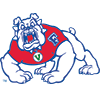
Rivers is one of the first backs that come to mind when discussing runners with major PPR upside. He's had at least 26 receptions in each of his three seasons at Fresno State (29 total games) and was on pace to set a new career-high in receptions last season if not for the Bulldogs being limited to just six games. He's back for his fourth year and is one of the most reliable running backs in the game. In addition to his pass-catching skill, Rivers has scored double-digit rushing touchdowns in each of his full seasons. Fresno State is among the best offenses in the Mountain West and Rivers is its focal point.
32.) Jerrion Ealy, Mississippi 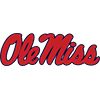
Ealy is the leader of an Ole Miss backfield that led the SEC in yards per game (210.6) in 2020 and is poised for another big season. He took 147 carries for 745 yards and nine touchdowns and added 15 receptions. His per-carry efficiency backslid from nearly 7.0 YPC as a freshman to 5.1, but Ealy's speed and elusiveness give reason to believe in a bounceback in that regard. There's the added bonus of Ealy having a high touchdown floor because Ole Miss' offense is among the best in the nation, so scoring chances and drives into the red zone will be bountiful.
33.) D'Vonte Price, FIU 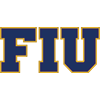
Price was one of the lone bright spots for FIU last season, taking 85 carries for 581 yards and four touchdowns over five games. He ran for over 100 yards in four of those outings despite defenses being able to fixate on stopping him because of FIU's non-existent passing attack. Price could face similar challenges this year, but we have reason to believe he can succeed regardless. Look for Price to lock down a high share of FIU's rushes and return efficient production off of that workload.
34.) Lew Nichols, Central Michigan 
Kobe Lewis is the top option in the Central Michigan backfield, but Nichols is still plenty involved for the Chippewas. Lewis locked down 41 percent of the rushing share in 2020, but Nichols wasn't far behind at 30 percent and no other Chippewa exceeded 10 percent, which suggests that this a two-man show in the CMU run game. Nichols safely projects to push over 150 carries with room for more this season, and if he can maintain the efficiency (6.5 YPC) he showed in 2020, a 1,000-yard season could be in the offing.
35.) Christian Beal-Smith, Wake Forest, 
Wake Forest lost half of its two-headed monster in the backfield this offseason with Kenneth Walker transferring to Michigan State, which leaves Beal-Smith in a prime spot to take on a major role. Beal-Smith already led the team in attempts (142), yards (732), and YPC (5.15). Where he could see major improvement is in the touchdown department; he had five in 2020 while Walker had 13 rushing scores and 31 red zone carries. Beal-Smith had 26 such carries in his own right, but he'll have less competition for them this time around. Don't expect Beal-Smith to absorb everything left behind by Walker, but he still projects as the true No.1 in the Wake Forest backfield.
36.) Noah Cain, Penn State 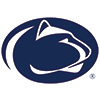
Penn State had one of the most perplexing seasons in college football last year as opt-outs and an offensive collapse led to a disappointing year in Happy Valley. Cain didn't even have the chance to get his season off the ground as he suffered a season-ending injury three carries into it. He's back and healthy, and with Keyvone Lee, Devyn Ford and Caziah Holmes failing to seize the No.1 role in Cain's absence, there's a strong chance Cain reclaims the starting job. Cain was among the top running back recruits in the 2019 class and showed out as a freshman while splitting carries with Journey Brown, averaging 5.3 YPC over 84 attempts. The third-year back, Cain, is a strong bounceback candidate.
37.) Terion Stewart, Bowling Green 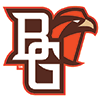
It was a truncated season for Stewart, but he showed difference-making ability out of the Bowling Green backfield. In three appearances, Stewart tore off 295 yards and four touchdowns on 37 carries (8.0 YPC). His debut featured 14 carries for 162 yards and two scores against Kent State. With Andrew Clair gone and Bowling Green lacking quality options in the passing game, Stewart projects to take on a major role in this offense. The team context is poor given that Bowling Green is among the worst teams in all of college football, which means the Falcons will be playing from behind often. Still, Stewart's importance to the offense will keep him involved regardless of game script.
38.) Jalen Berger, Wisconsin 
Berger opened 2020 behind Nakia Watson but quickly earned a sizable share of the Badgers' backfield workload. Unfortunately, COVID-19 protocols cost him multiple games, holding the freshman to just 60 carries for 301 yards and a pair of touchdowns. It's worth noting that Berger appeared to be on a carry count as a freshman, tallying exactly 15 in each of the four games he appeared in. With inexperience surrounding him in the backfield, look for the reins to come off in his second season as part of a Wisconsin offense that typically ranks high in run-play percentage. -CB
39.) Zonovan Knight, North Carolina State 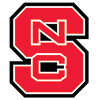
Though Ricky Person is plenty talented, Zonovan "Bam" Knight is the best back for the Wolfpack. Knight doubled his touchdown production, going from five to 10 on just seven more carries, last season while maintaining a healthy 5.5 YPC average. He also saw an uptick in passing game work, nabbing 20 of 27 targets for 136 yards after reeling in just seven passes as a freshman. The spike in touchdown production could make him a candidate for regression in that category, but even if that happens, Knight will still have consistent enough week-to-week volume that his overall production should keep him among the Top 40 running backs for fantasy.
40.) Jalen Mitchell, Louisville
Mitchell presents as the most like running back in the ACC to break out, but we're basing that on a very limited sample size. He ran for 347 yards and two scores on 52 carries last year, with all but four carries and 13 yards coming in the team's final four games. At 5-foot-10, 221 pounds, Mitchell has the frame and low center to run often between the tackles, but also has shown the shiftiness and burst to make big plays. This offense has consistently produced fantasy-relevant backs, most recently Javian Hawkins, and Mitchell appears next in line. He'll need to beat out Hassan Hall during the preseason, but Hall has shown he's a better complementary piece than a lead back. Mix in dual-threat quarterback Malik Cunningham and creative play calling from Scott Satterfield's offense, there's a lot of potential in Mitchell as a lead back.








